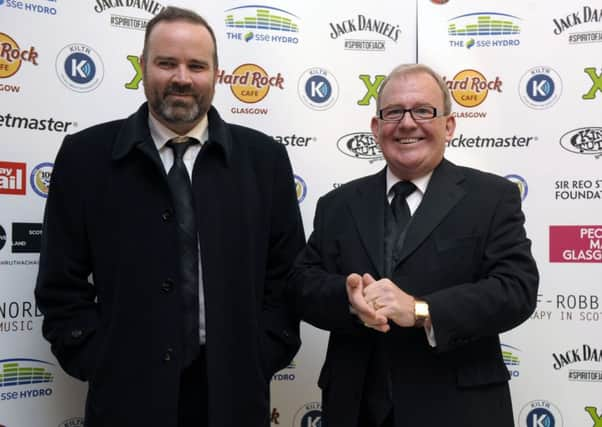Broadcaster calls on BBC to rescue Scots language


BBC Scotland’s Frieda Morrison, who also presents a monthly podcast on Scots Language Radio, will host an event next week and call for Scots to be given the same airtime as Gaelic.
FOLLOW US
SCOTSMAN TABLET AND MOBILE APPS
“Scots is in a far more perilous situation than Gaelic. Yet in recent memory we had children ridiculed for using it at school and it only being acceptable once a year learning a poem for Burns Day,” she said
Advertisement
Hide Ad“Using Scots is all about confidence and identity. So many people are proud they speak it and it has not held them back.
“But we need a multi-pronged attack. Education Scotland has made it part of the curriculum but we need it heard much more often.”
Scots, Morrison said, is usually only ever heard spoken on television by characters in comedy shows such as Still Game and Gary Tank Commander, although several films have used Scots, including Neds (2010), directed by Peter Mullan, Ken Loach’s Sweet Sixteen (2002) and Disney Pixar’s cartoon Brave (2012).
At the Broadcasting in Scots event, Morrison will ask why “people speak naturally in Scots but think the media requires Standard English”. She claims “shutters came down” on Scots after the 1707 Union.
Scots has various regional dialects including Central Scots, Dundonian, Doric, Borders, Fife, Caithness, Orcadian and Shetland. Experts say having Scots involves the ability to speak, read or understand the meaning of regional phrases such as “ah burst out greetin’” and words such as rammy, dreich, lang, bonnie and wean.
In the 2011 Census 30 per cent of respondents said they spoke Scots, but confusion over definitions means the exact figure is probably higher.
Advertisement
Hide AdMichael Hance, director of the Scots Language Centre, said the BBC needed to give it more mainstream coverage, beyond its use in comedy.
“My main issue is that it is quite confined to a certain genre, rather than having Scots voices commenting on issues such as the economy and world politics,” he said.
Advertisement
Hide AdA BBC Scotland spokesman said: “The Scots tongue is to be heard across our output.”
He listed radio’s Robbie Shepherd, Billy Kay, Tam Cowan, the Out of Doors show and TV’s Landward as well as River City, Shetland, Bob Servant and the upcoming Stonemouth as examples of Scots in use.
Broadcasting in Scots day, Saturday at the Scottish Storytelling Centre, Edinburgh